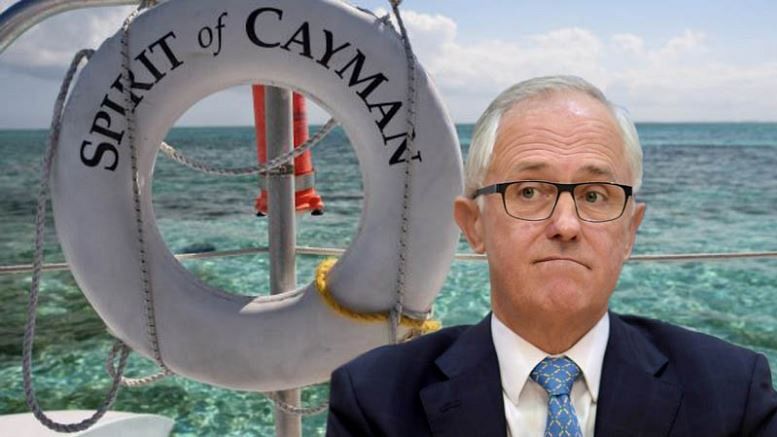Our politicians may say they hold ‘"Aussie values", but their actions tell a different story, writes Independent Australia's resident philosoper Dr Samuel Douglas.
THE PRIME MINISTER recently spruiked several Australian values, including freedom, equality of men and women, the rule of law, democracy and "a fair go".
Any individual or organisation can claim that they have certain values. They can even write them down in some impressive document, like a code of ethics (or national anthem). In 1989, Exxon had a code of ethics. But this didn’t stop the multiple failures of duty of care, accountability and risk management that led to the Valdez running aground. The corporate world is littered with examples of organisations that said one thing but did another.
Talk is cheap. Often, it’s actions that indicate what values a person or organisation holds.
So, what might the actions of politicians and the reality of our society say about their actual values?
Freedom (restrictions apply, see Terms and Conditions for details)
There’s more than one kind of freedom. There’s freedom from restriction against specific actions — I’m free to buy a car, but not to steal it. Quite separate to this, there’s the actual capacity to do a something — I’m free to walk to the end of my street, but not free to teleport there with the power of my mind.
Modern neoliberals are more keen on freedom from restriction, but even there we’re a bit selective. Australia has loads of freedom from restriction, unless you want to marry your same-sex partner, get stoned instead of drunk, vape instead of smoke cigarettes, ride a pushbike without a helmet, or seek medical assistance to end your own life. I’m not saying all restrictions are bad – I’m glad we aren’t free to shoot each other in the street – but let’s not pretend we are some free-wheeling, small-government bastion of liberty, where laws aren’t constantly interfering with our choices.
As for the capacity to undertake an action, thinking about freedom this way causes all sorts of our supposed liberties to look distinctly lacklustre. There’s no law against a nurse earning $60,000 a year buying a house in Sydney, but their capacity to do so is severely compromised that there may as well be. The parents of a child with intractable epilepsy are (in some states at least) theoretically free to seek medical cannabis as a treatment, but the reality is that legally sourcing it is almost impossible.
At best, we effectively have as much freedom as our socioeconomic status allows. Even my freedom to buy a car is limited — by my financial capacity. I can only buy the car I can afford. My freedom to purchase also has economic limits.
Given the right wing's obsession with freedom of speech and their vitriolic rhetoric defending..,. #yassmin https://t.co/561ltMkoyi
— Debbie Kilroy (@DebKilroy) April 29, 2017
(In)equality of men and women
Gender equality — sure! But there is that whole pay gap thing. And the fact that women do a disproportionate amount of domestic work. And the fact that abortion is still technically illegal in many states.
Governments’ supposed commitment to gender equality is sorely tested by the issue of domestic violence. Women are approximately three times more likely to experience violence from a partner than men. That one in five women have experienced sexual violence is a bit awkward. In Australia, one woman a week is killed by a partner or former partner. The disparity is clear: when it comes to sexual and domestic violence, equality of men and women simply does not exist. And yet, the frontline legal services that assist women in these situations faced a 30 per cent cut in their funding until a recent change of heart by the Federal Government.
Of course, if it’s Muslim immigrant domestic violence, that’s different. It’s so important the deputy PM suggested perpetrators could be ineligible for citizenship.
Democracy — for sale to the lowest common denominator
Malcolm “77 votes” Roberts is a senator. That sentence should really be enough by itself.
But if you want more, consider how much greater influence the very wealthy have in the democratic process. I’m confident that ordinary Australians have ideas that they think would be great government policy, but unless you are a billionaire mining magnate, it’s a lot harder to make it happen.
The Rule of Law: Do as I say, not as I do
Let’s leave aside the fact that politicians sometimes struggle with the fact that the law applies just as much to them as it does to normal people and consider this recent example of saying one thing and doing another.
On April 14, reports emerged that shots were fired at the Manus Island detention centre and an armed mob may have attempted to gain entry. In response to this, Immigration Minister Peter Dutton suggested that Papua New Guinean locals had taken exception to a local child being "led" into the centre — the implication being that the detainees had lured the child to commit some act of sexual assault upon him.
What motivated the Good Friday disturbance on Manus Island? @barriecassidy says the answer to this goes to the credibility of Peter Dutton pic.twitter.com/9lRmD0buxs
— News Breakfast (@BreakfastNews) April 27, 2017
The implication that the detainees somehow deserved to face a potential lynch mob is a problem for Dutton and the Government, no matter what the facts of the case are. Because if he really believed in the rule of law, he would object to anything other than the supposed sexual predators facing a fair and public trial. Maybe he does hold this value, but pretends not to as part of his gross dogwhistling pantomime.
Considering this, it would have been more accurate for Turnbull to have said "the rule of law, unless the alternative is politically expedient". Unfortunately for the PM, Dutton thinks "expediency" is demanding the ABC and Fairfax apologise for doing their jobs, when he clearly can’t do his.
A fair go ... for some
"A fair go". Now there’s a phrase prone to misuse or creative political reinterpretation. For now, let’s take it as the conveniently vague idea that everyone should have a reasonable or equitable opportunity to survive, thrive and achieve their goals.
Australian governments are totally committed to this ideal. Just not quite so much for those who are poor, insecurely employed, remote and rural, mentally ill, unemployed or Indigenous. Like the capacity to be free I mentioned earlier, the ability to access the opportunities afforded by the "fair go" is determined by a person’s access to money and other advantages. Not everyone has these, often for reasons that no individual can control. Almost everyone gets a fair go. But it’s fairer for those lucky enough to be born healthy, wealthy and white.
And getting "a fair go" if you had the temerity to turn up in a boat seeking asylum? Forget it!
Meanwhile, back on Manus, there’s a version of events where detainees gave fruit to a hungry child, even under their own conditions of deprivation and disadvantage. Whether this turns out to be true or not, maybe "a fair go" means helping those worse off than yourself, even when you don’t have much of your own to share. Now that’s an Australian value I could get on board with.
You can follow Dr Samuel Douglas on Twitter @BeachPhilosophy.

This work is licensed under a Creative Commons Attribution-NonCommercial-NoDerivs 3.0 Australia License
Monthly Donation
Single Donation
pretty much nails it https://t.co/55folzTBwl pic.twitter.com/DcI8VMG7LS
— Jonathan Green (@GreenJ) April 28, 2017
Good value. Subscribe to IA today for just $5.











